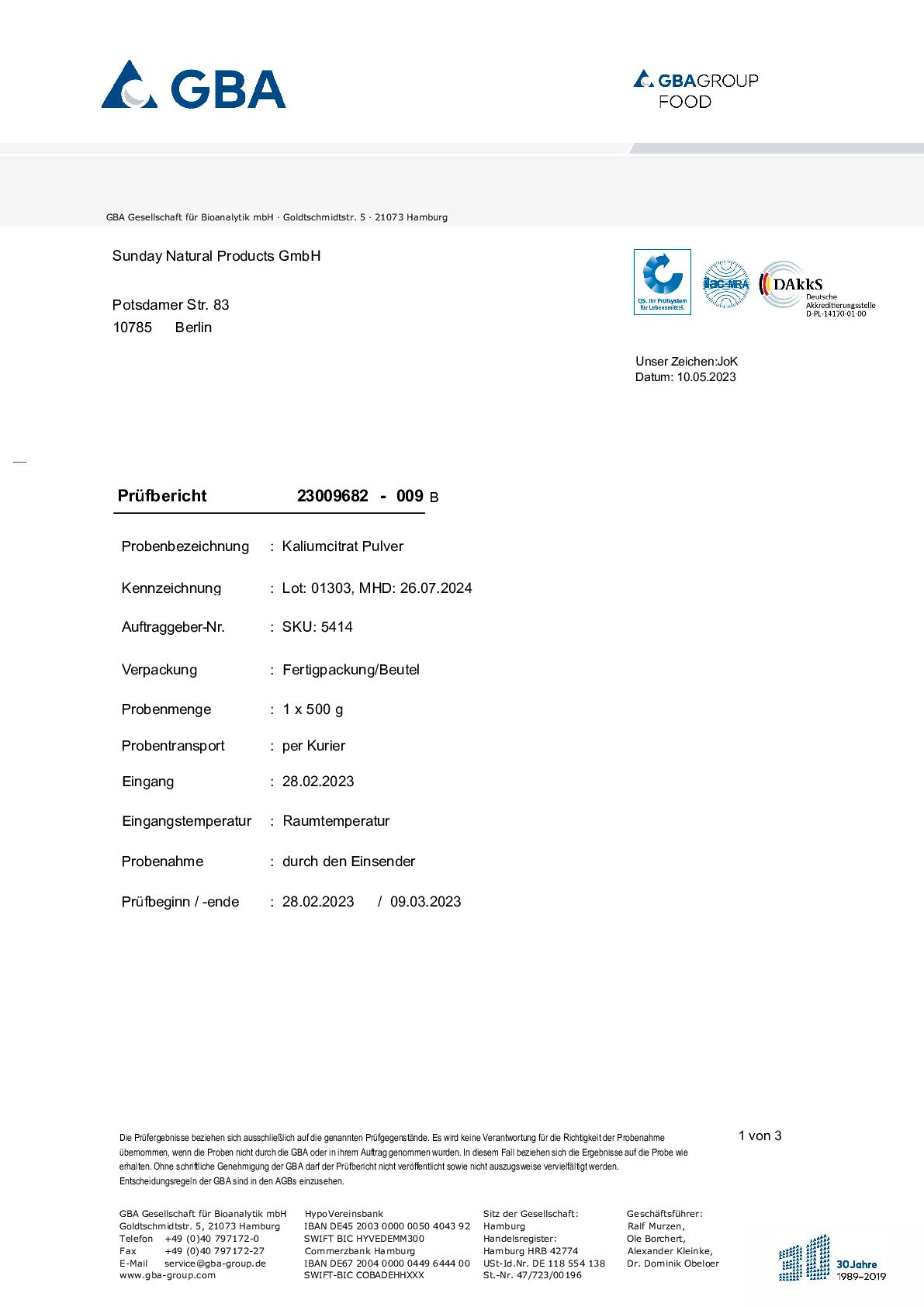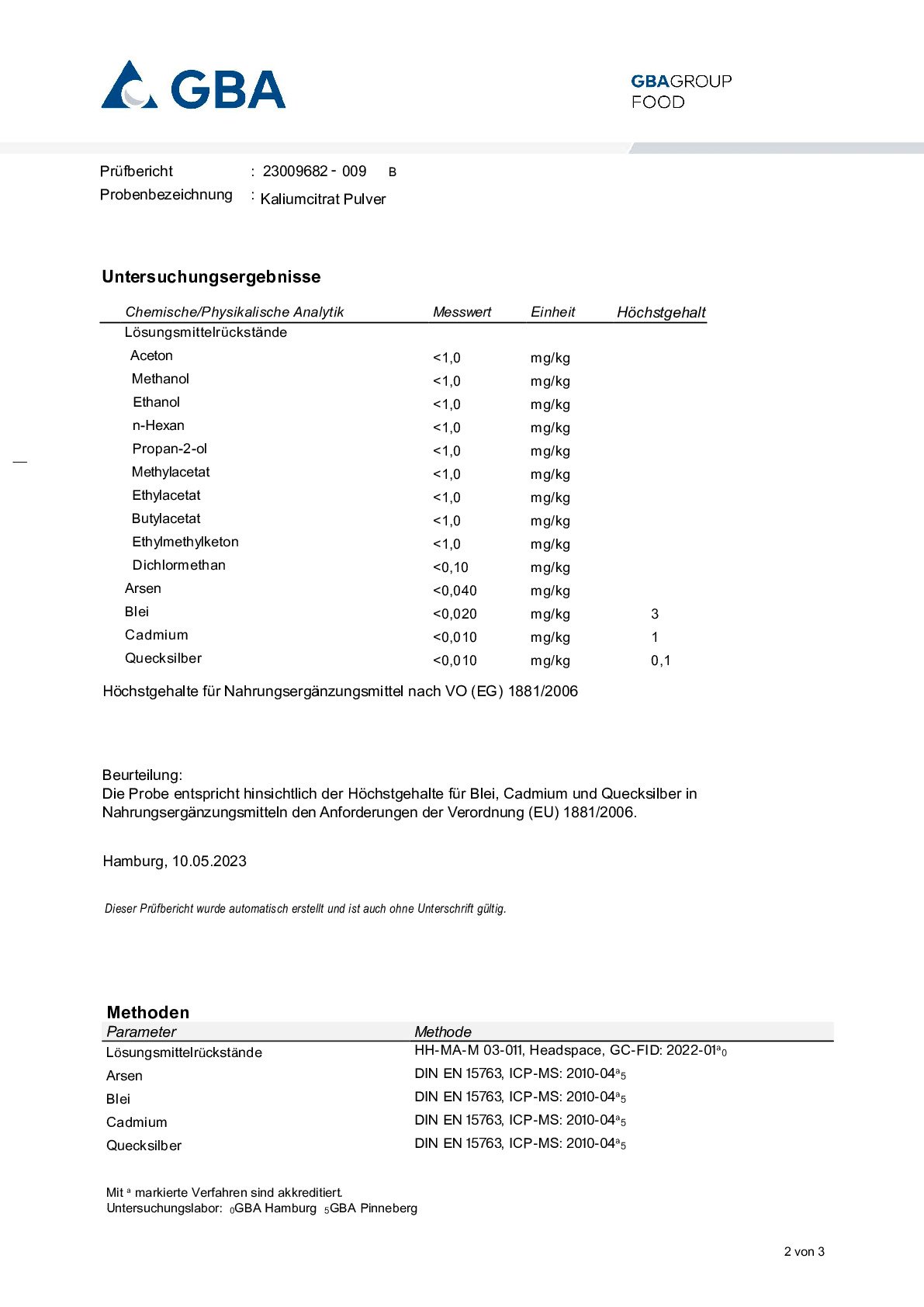Potassium is the third most common mineral in the body and an essential electrolyte. Sports as well as daily stress can increase bodily requirements for minerals such as potassium. Approximately 98% of all potassium in the body can be found inside the cells while its major counterpart, sodium, is mostly concentrated outside of cells. A balanced ratio of these minerals lays an important foundation for a number of bodily reactions including enzymatic metabolic processes. Modern diets, which are often heavy in salt, can easily bring this system out of balance so that the body has insufficient plant-based potassium to counterbalance an excess of sodium. In fact, too much sodium can even lead to the expulsion of potassium from the body via the kidneys. Since potassium cannot be stored in the body, daily intake is required to maintain balance within the body.
One of the main functions of potassium is the initiation and management of signal transmission in the nerves and muscles, including the heart. Potassium is decisive in the maintenance of water as well as electrolyte balance and thereby cell pressure and acid-base balance. As a cofactor for numerous enzymes, potassium activates various processes of cell division, growth, and energy production. Potassium further has an influence on the maintenance of normal blood pressure and exerts influence on insulin metabolism.
A deficiency in potassium can lead to disorders of water as well as acid-base balance, feelings of weakness, and heart dysfunction.
Potassium Citrate
The organic compound potassium citrate is composed of potassium and the salt of citric acid (citrate). Our potassium citrate has a high concentration of 35% elemental potassium. Due to its slightly basic pH value (7.5-9), this compound is easily absorbed in the digestive tract without neutralising digestive acid or alkalising the intestinal environment.
Health Benefits of Potassium According to the European Food Safety Authority (EFSA)
Potassium contributes to:
- Normal functioning of the nervous system
- Normal muscle function
- The maintenance of normal blood pressure























